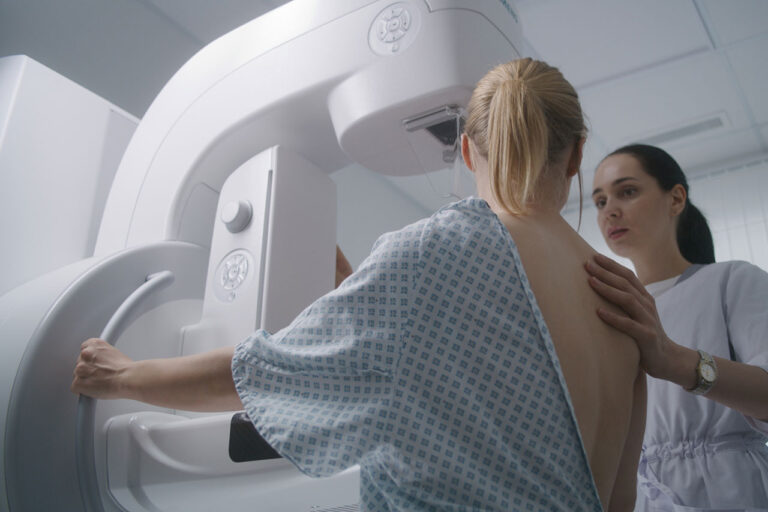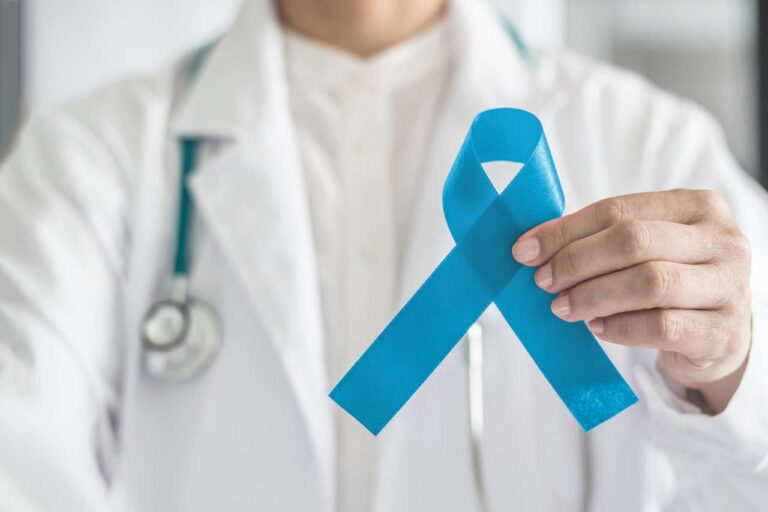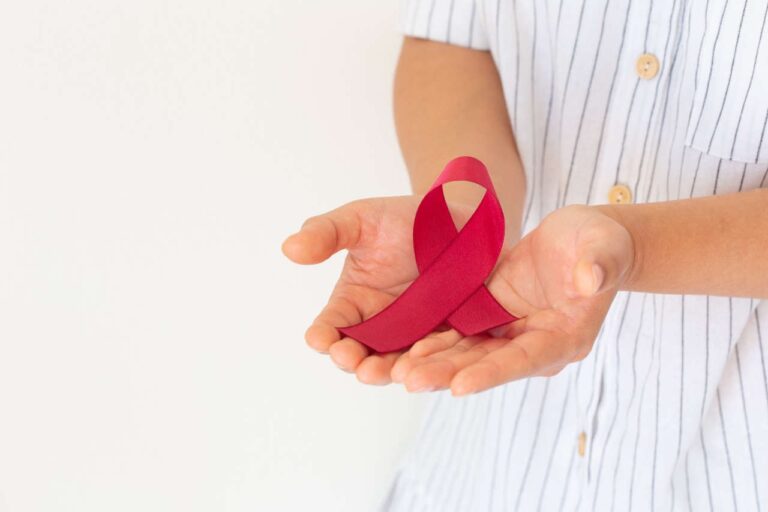
Everolimus (pronounced [e ver OH li mus]) is also known by the brand names Afinitor and Zortress. Everolimus is an antineoplastic (anti-cancer) drug that belongs to a class called mTOR kinase inhibitors. It is a type of chemotherapy that prevents cancer cells from multiplying and restricts their growth.
Speak to a Chemo Specialist
What Is Chemotherapy?
Chemotherapy is a cancer treatment in which certain drugs are used to kill cancerous cells. These drugs are usually cytotoxic chemical substances that are toxic to the cells, restrict their growth, prevent their division, and ultimately kill the cells.
Protection From Chemotherapy
This drug is considered to be a hazardous agent, and normally, these pills are covered by a thin coating of material, but if this coating is damaged, removed, melted, or if the pill is broken into pieces, the chemical inside the pill can cause damage to your skin if you touch it. Therefore, it is important to take appropriate precautions for receiving, handling, storing, administering, and disposing of this medication. It is highly recommended to wear gloves if touching this medication and while preparing the suspension or to avoid touching it entirely by using the cap of the bottle to scoop up the tablet and put it directly into the mouth.
How Is Everolimus Used?
Everolimus has been approved by the Food and Drug Administration (FDA) to treat many different types of cancers, kidney cysts, and seizure control. It is also used to prevent organ transplant rejection. Everolimus can be prescribed alone or with other anti-cancer medications.
Available Formulations
Everolimus is only available as an oral tablet and as a tablet for oral suspension by the name Afinitor Disperz. It is available in several different dosage strengths.
Directions for Use
Everolimus can be dosed either once or twice a day with varying doses depending on the condition treated. For once-a-day dosing, administer at the same time each day. If taking everolimus for organ transplantation, administer twice a day consistently (about 12 hours apart) and administer at the same time as cyclosporine or tacrolimus. Verify the correct dose and frequency with your provider. The dose should not be more or less than what is prescribed.
Tablets: Swallow tablets whole with a glass of water; do not break, crush, chew, or allow them to dissolve in your mouth. If tablets are accidentally broken or damaged, avoid inhalation or contact with the skin or mucous membranes.
Speak to a Specialist About Copay Assistance
Tablets for oral suspension: Due to their hazardous nature, it is important to wear gloves when preparing the everolimus suspension. Do not break or crush tablets. Suspension should be prepared in water only and should be administered immediately; discard if not administered within 60 minutes after preparation. The maximum dose is 10 mg per syringe and 10 mg per small glass. Use an additional syringe or small glass for doses greater than 10 mg. The oral suspension can be prepared in an oral syringe or in a small glass, as follows:
- Preparation in an oral syringe: Place dose into 10 ml oral syringe. Draw about 5 ml of water and about 4 ml of air into the syringe; allow it to sit (with the tip up) in a container until tablets are in suspension (usually 3 minutes). Gently invert syringe five times immediately prior to administration. Administer suspension then add about 5 ml water and about 4 ml of air into the same syringe, swirl to suspend remaining particles, and administer again.
- Preparation in a small glass: Place dose into a small glass (≤100 ml) containing about 25 ml of water and allow it to sit until tablets are in suspension (usually 3 minutes). Stir gently with a spoon immediately prior to administration. Administer suspension, then add about another 25 ml of water to the same glass, swirl with the same spoon to catch any residue left, and administer again.
Missed Dose
This medicine needs to be administered on a fixed schedule. If you miss a dose, contact your physician for further instructions immediately. You may take a missed dose up to 6 hours after the regularly scheduled dose. If it has been more than 6 hours since the last scheduled dose, resume at the next regularly scheduled time. Do not administer double doses to make up for a missed dose.
Storage
Store tablets in their original containers in a cool, dry place at room temperature and ensure the bottle is tightly closed. Discard oral suspensions if not administered within 60 minutes.
What To Avoid While Taking Everolimus
While taking everolimus therapy, you must follow some precautions. Always tell your physician about any medications you are already taking. Do not take any drug or medicine (even herbals, vitamins, or over-the-counter medications) without prior consent from your physician or pharmacist. They may have some significant interactions with everolimus. Avoid grapefruit, grapefruit juice, and any foods or supplements containing grapefruit or grapefruit juice throughout therapy as they may interact with the medication as well.
Minimize sun exposure and use sunblock while outside. Avoid any kind of immunization or vaccination without prior consent from your physician. Avoid close contact with recently vaccinated individuals, as such contact may increase your risk for infection. In pediatric patients, if possible, complete recommended series of childhood vaccinations prior to starting everolimus treatment.
Pregnancy and Everolimus
Pregnancy status must be checked prior to starting everolimus therapy in women of childbearing age, and effective contraception must be used during treatment and for 8 weeks after the last dose. Males with female partners of reproductive potential should use effective contraception during treatment and for 4 weeks after the last dose. Everolimus may cause fetal harm and is therefore not recommended for women who are breastfeeding during therapy. Breastfeeding should also be avoided for at least 2 weeks after the last dose.
Get Chemotherapy Copay Assistance
Chemotherapy Financial AssistanceSide Effects
As with any other medication, you may encounter side effects while taking everolimus. A few things to remember are:
- You may not have all the side effects listed below. Many people may experience little to no side effects.
- The severity of side effects may vary from person to person, so don’t compare your side effects with other people’s experiences.
- Most of the side effects will improve when therapy is discontinued.
- These side effects are easily manageable most of the time, either by readjusting the dose of everolimus or using additional medications to treat the symptoms. Consult with your physician or pharmacist to explore available options.
- Do not hide any symptoms; if you feel any discomfort, do not hesitate to tell your physician or pharmacist about it.
Note: This is not a comprehensive list of all side effects. Talk to your doctor if you have questions.
Some of the more serious side effects of everolimus are listed below:
Angioedema
Angioedema is a condition where swelling forms underneath the skin of the mouth, tongue, or lips. The severity of angioedema can vary from mild to life-threatening. Concurrent use with other therapies that may also cause angioedema (e.g., ACE Inhibitors) can increase the risk. If angioedema develops, seek medical attention immediately.
Bone Marrow Suppression (BMS)
It is essential to keep up with regular blood tests, especially the complete blood count test (CBC). The CBC blood test is capable of detecting potential BMS, including neutropenia (low neutrophils, a type of white blood cell), thrombocytopenia (low platelet count), and anemia (low red blood cells), all of which are potential side effects of using everolimus.
Risk of Infection
Everolimus can suppress the immune system which may result in increased susceptibility to bacterial, fungal, or viral infections. It may also cause more serious infections, including pneumonia, hepatitis B, sepsis, lymphomas, or skin cancer. Preexisting infections should be treated prior to starting everolimus. The risk is associated with treatment intensity and the duration of therapy. To minimize the risk of skin cancer, limit exposure to sunlight and ultraviolet light, wear protective clothing and use an effective sunscreen.
Fluid Retention
Everolimus can commonly cause fluid retention (also known as edema). Rapid weight gain or swelling of the abdomen, legs, feet, or arms can all be signs of fluid retention. Contact your physician if you experience any of these symptoms.
Graft Rejection
For kidney or liver transplants, there is a high risk the kidney or liver may develop a blockage (due to a blood clot) when using everolimus within 30 days of transplantation, causing the body to reject the transplant, potentially resulting in graft loss. To reduce graft rejection risk, avoid everolimus use until at least 30 days post-transplantation. Use of everolimus within 3 months after heart transplantation is not recommended due to the increased risk of serious or fatal infections.
Consult a Chemotherapy Specialist
Get Chemotherapy Treatment AssistanceAllergic Reaction/Hypersensitivity
Although uncommon, it is possible to develop hypersensitivity with everolimus use. Signs of an allergic reaction can include rash; hives; itching; red, swollen, blistered, or peeling skin with or without fever; tightness in the chest or throat; wheezing; difficulty breathing, swallowing, or talking; unusual hoarseness; or swelling of the mouth, face, lips, tongue, or throat. If you are experiencing any of these symptoms, seek emergency medical attention immediately.
Metabolic Effects
Everolimus can cause metabolic effects like elevated cholesterol, blood glucose, and triglycerides. Using a high everolimus dose can increase the risk of metabolic effects. Manage blood glucose and cholesterol levels with appropriate therapy. If left uncontrolled, there is a high risk of developing diabetes.
Mucositis or Stomatitis
Everolimus is commonly associated with mouth ulcers, mucositis (mouth sores), and stomatitis (inflamed/sore mouth). Stomatitis typically occurs within the first 8 weeks of everolimus therapy. When used for cancer treatment, dexamethasone alcohol-free oral solution mouthwash can help reduce the incidence and severity of stomatitis.
Kidney Complications
Everolimus may cause kidney complications, including a condition where protein leaks out of the kidneys and is found in the urine, leading to kidney failure. Kidney status can be checked by taking a urine test at the doctor’s office.
Lung Complications
Lung problems can include difficulty breathing, coughing, wheezing, etc. It may progress to pneumonitis or interstitial lung disease (ILD) or can be fatal. If ILD develops, permanent discontinuation of everolimus may be warranted. Therefore, it is essential to inform your physician immediately if any of these symptoms are present.
Impaired Wound Healing
Everolimus use can impair wound healing. Wound healing complications can be dangerous when undergoing surgery.
Other common side effects may include:
- Headache
- Acne
- Fatigue
- Constipation or diarrhea
- Abdominal pain
- Weight loss
- Change in taste
- Dry mouth and skin
- Hair loss
- Joint, muscle, or back pain
- Nosebleeds
- Nose or throat irritation
- Trouble sleeping
Speak to a Chemo Specialist
Monitoring
Due to its many side effects, monitoring is an important part of managing everolimus therapy.
- Pregnancy status should be checked prior to and during therapy.
- Patients should be monitored for signs of angioedema. If present, everolimus may be discontinued permanently.
- If undergoing elective surgery, it is recommended to withhold everolimus at least one week prior to any pre-planned surgery and for 2 weeks post-surgery and until the wound is fully healed.
- Monitor blood through CBC tests at baseline, every 6 months for the first year of treatment, and annually thereafter; treatment may be withheld or discontinued based on results.
- Monitor for signs and symptoms of infection. If an infection develops, everolimus may be withheld or discontinued, depending on the severity.
- If taking concomitant corticosteroids or other immunosuppressive agents, antibiotics may be given to prevent infections called Pneumocystis jirovecii (PCP) and Cytomegalovirus (CMV)
- Metabolic effects (including weight, blood glucose, cholesterol levels) must be monitored, and based on the severity, treatment interruption or discontinuation may be required.
- Monitor for mucositis or stomatitis development. To prevent or reduce symptoms, contact your physician to add a preventative therapy like dexamethasone mouthwash.
FAQs
Is everolimus a chemo agent?
Chemo drugs are those that are used in the management of various cancers. Everolimus treats cancer by stopping cancer cells from reproducing and by decreasing blood supply to the cancer cells. Thus, it is a chemo agent that is advised as a treatment option for various cancer patients. Everolimus also prevents transplant rejection by decreasing the activity of the immune system.
How should everolimus be taken?
Everolimus is only available as an oral tablet and as a tablet for oral suspension by the name Afinitor Disperz. It is available in several different dosage strengths. Everolimus may be taken with or without food.
What should I avoid when taking everolimus?
Avoid eating grapefruit or drinking grapefruit juice as they can raise the level of the medication in your body to dangerously high levels. While on everolimus therapy, certain vaccinations should not be administered due to the increased risk of infection. Also, avoid coming into contact with somebody who has recently gotten a live vaccine. Contact your physician or pharmacist for specific vaccine instructions.
What can I do to prevent mouth sores from everolimus use?
Practice good dental hygiene to keep your mouth healthy and free of sores. Brush teeth twice each day and floss once per day. Eat a nutritious diet and keep an eye out for any changes in your mouth. To prevent the severity and incidence of stomatitis, contact your physician to see if you can take a preventative therapy like dexamethasone mouthwash.
REFERENCES:
- Everolimus. In: Lexi-drugs online [database on the Internet]. Hudson (OH): Lexicomp, Inc.; 2016 [updated 2 Feb 2022; cited 2 Feb2022]. Available from: http://online.lexi.com.
- Everolimus. In: In Depth Answers [database on the Internet]. Greenwood Village (CO): IBM Corporation; 2017 [cited 2022 Feb 2]. Available from: www.micromedexsolutions.com.
- Afinitor: Uses, dosage, side effects, warnings. Drugs.com. (n.d.). Retrieved January 28, 2022, from https://www.drugs.com/Afinitor.html.
- Afinitor & AFINITOR DISPERZ: HCP Website. Novartis. https://www.hcp.novartis.com/products/afinitor/. Accessed February 4, 2022.
- Afinitor (everolimus): Side effects, how it works, and more. Breastcancer.org. https://www.breastcancer.org/treatment/targeted_therapies/afinitor. Published March 30, 2020. Accessed February 4, 2022.
- How to take Afinitor treatment. How to Take AFINITOR® (everolimus) Tablets and AFINITOR DISPERZ® (everolimus tablets for oral suspension) for SEGA with TSC. https://www.us.afinitor.com/sega-tuberous-sclerosis/about-treatment/how-to-take/. Accessed February 4, 2022.













